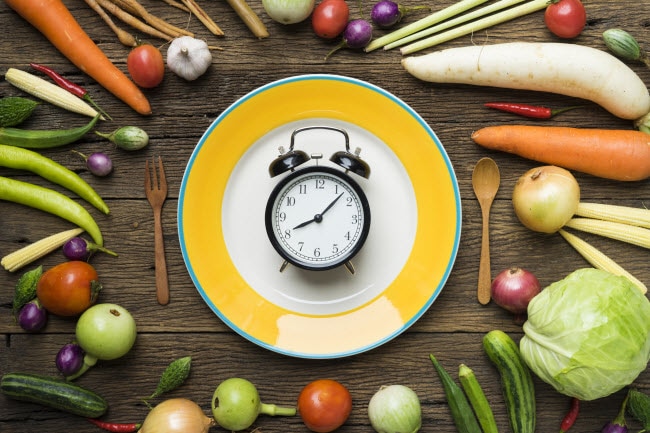As humans, each of us is different, equipped with unique DNA and characteristics. However, all humans share at least two traits: We need to eat and we need to sleep.
Now, more evidence is cropping up to suggest that eating and sleeping are tightly interwoven.
For example, a study published earlier this year in the International Journal of Cancer found that eating dinner before 9 p.m. or waiting at least two hours between eating and heading to bed can reduce the risk of breast or prostate cancer by about 20 percent. That’s compared with people who eat dinner after 10 p.m. or eat and then go to sleep shortly afterward.
The study, which sheds light on a subject that has gotten little scientific attention, was done by researchers at the Barcelona Institute for Global Health. They examined data for breast cancer and prostate cancer patients because these two types of cancer are closely associated with night-shift work, circadian (sleep) rhythms and biological patterns.
One of the researchers, Dora Romaguera, says in a news release: “Further research in humans is needed in order to understand the reasons behind these findings, but everything seems to indicate that the timing of sleep affects our capacity to metabolize food.”
Satchin Panda believes in that line of thinking. He’s the author of the new book “The Circadian Code: Lose Weight, Supercharge Your Energy, and Transform Your Health from Morning to Midnight” and a professor at the Salk Institute who specializes in research about circadian rhythms. Panda maintains that we’d improve our metabolic health if we ate meals during a daily eight- to 10-hour window, with the first bit coming in the morning and the last bite coming in the early evening, according to The New York Times.
“We’ve inhabited this planet for thousands of years, and while many things have changed, there has always been one constant: Every single day the sun rises and at night it falls,” Panda told The Times. “We’re designed to have 24-hour rhythms in our physiology and metabolism. These rhythms exist because, just like our brains need to go to sleep each night to repair, reset and rejuvenate, every organ needs to have down time to repair and reset as well.”
Registered dietitian and nutritional epidemiologist Suzanne Dixon insists that eating too late in the evening isn’t good for our health. For instance, heading to bed with a full stomach can disrupt sleep and lead to heartburn, she says.
“Data are mixed on whether late-night dinners contribute to weight gain or difficulty losing weight,” Dixon says. “Still, some studies do suggest late-night eating is associated with carrying extra pounds.”
Also, Dixon says, fasting overnight — with a 12- to 13-hour break between the last food of the evening and the first food of the morning — is linked to a lower risk of obesity, high blood pressure, insulin resistance and a collection of health issues called metabolic syndrome.
Dixon notes that if you’re a night-shift worker, your “overnight” fast actually might be during the day.
She suggests trying to lengthen your overnight fast, regardless of when it occurs, if you’re not meeting the 12-hour threshold.
“Perhaps you normally go eight hours for an overnight fast. It may be unrealistic to wait a full 12 hours right off the bat, especially if you wake up hungry,” Dixon says. “However, even if you can extend your overnight fast from eight hours to nine or 10, you’ll likely be improving your overall health.”
Erin Clifford, a holistic wellness coach, also subscribes to the notion that it’s ideal to stop eating after your evening meal and wait at least 12 hours before eating again. For instance, if you finish dinner at 7 p.m., don’t eat again until breakfast the next morning, Clifford recommends.
“Make dinner your cutoff,” she says. “This gives your digestive system a needed break. It also improves the quality of your sleep, as your body is not trying to digest late-night fare. Plus, it stops you from consuming needless empty calories.”
Clifford adds that we should get into the habit of eating every four to five hours throughout the day.
“This will keep your energy consistent and keep you feeling satiated so you will not consume unwanted calories. For instance, when we go long periods without eating, we are more likely to binge on high-calorie foods and/or overeat at our next meal,” she says.
The only time you might want to stray from this schedule is if you’re doing any sort of intermittent fasting, Clifford says.
For her part, registered dietitian and licensed dietitian/nutritionist Jenna Talleda, a certified intuitive eating counselor, argues that there are no “best” or “worst” times for us to eat.
“Our bodies tell us when it’s time, based on hunger and fullness cues,” Talleda says. “If hunger is not recognized and honored, it can lead to low blood sugar, moodiness, poor concentration and other [issues]. It also increases the likelihood of overeating later to make up for what was missed out on.”




